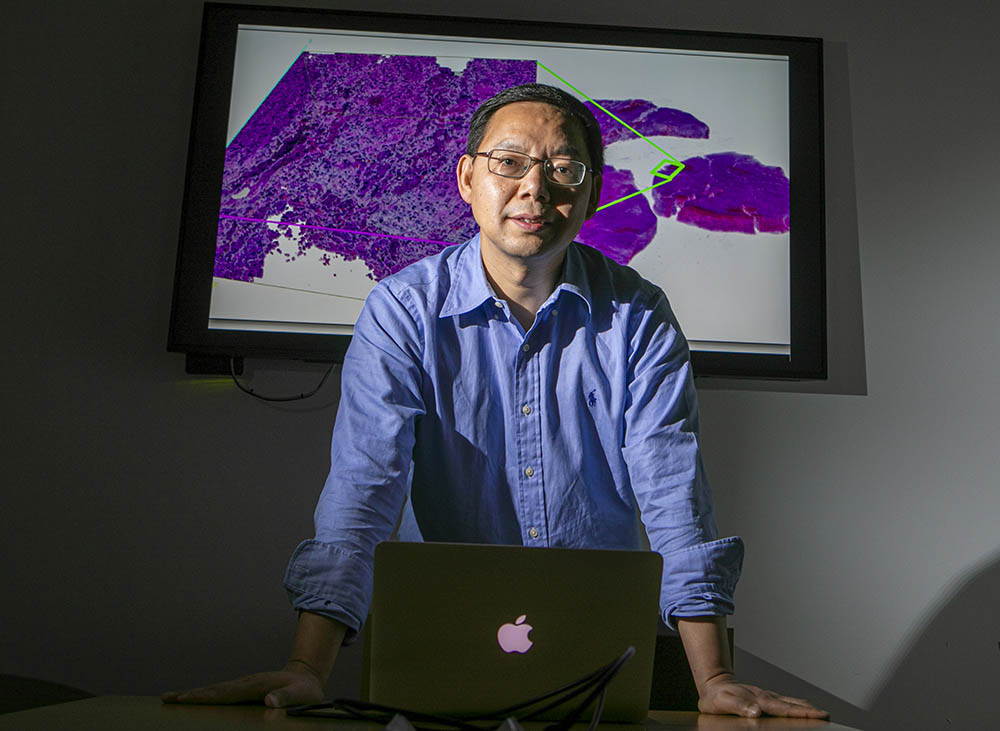 A $1.14 million grant from the National Cancer Institute (NCI) to research 3D computational pathology has been awarded to a team led by Fusheng Wang, associate professor in the Departments of Biomedical Informatics and Computer Science and an affiliated faculty member of the Institute for AI-Driven Discovery and Innovation.
A $1.14 million grant from the National Cancer Institute (NCI) to research 3D computational pathology has been awarded to a team led by Fusheng Wang, associate professor in the Departments of Biomedical Informatics and Computer Science and an affiliated faculty member of the Institute for AI-Driven Discovery and Innovation.
The research aims to revolutionize digital pathology from 2D to 3D imagery, which would improve the efficiency and accuracy of clinical diagnosis, particularly in the context of cancer.
“Right now there are severe limitations on cancer research from tissue data due to diversity in tumor tissue types, biased information from 2D tissue sections, spatially distorted biomarkers, and static imaging of tumor environment characteristics,” Wang said. “3D digital pathology provides for more accurate imaging of tissues that captures the structure of the tissues and the biomarkers for static and dynamic environments. This type of imaging will make it more efficient to understand tumor development progression and the environment of the tumors.”
The project involves the combination of computer vision, GIS, big data technologies and the latest in artificial intelligence to create the 3D imaging resource for new digital pathology. Wang further explains that experimentation will lead first to a small framework of images to lay a foundation for larger pathology imaging data. This process will make for more accessible and efficient testing and discovery of spatial interactions of 3D pathology and biomarkers in cancer research and targeted therapy development.
Collaborators on the research include Dr. Jun Kong (MPI) from Georgia State University and scientists from Emory University and Northwestern University. Stony Brook will receive approximately $480,000 to conduct research for the 3D spatial analytics project, and the application to breast cancer research led by Patricia Thompson-Carino, PhD, in the Renaissance School of Medicine.
